Latest news
A Day In The Life of Bolton’s Occupational Therapists
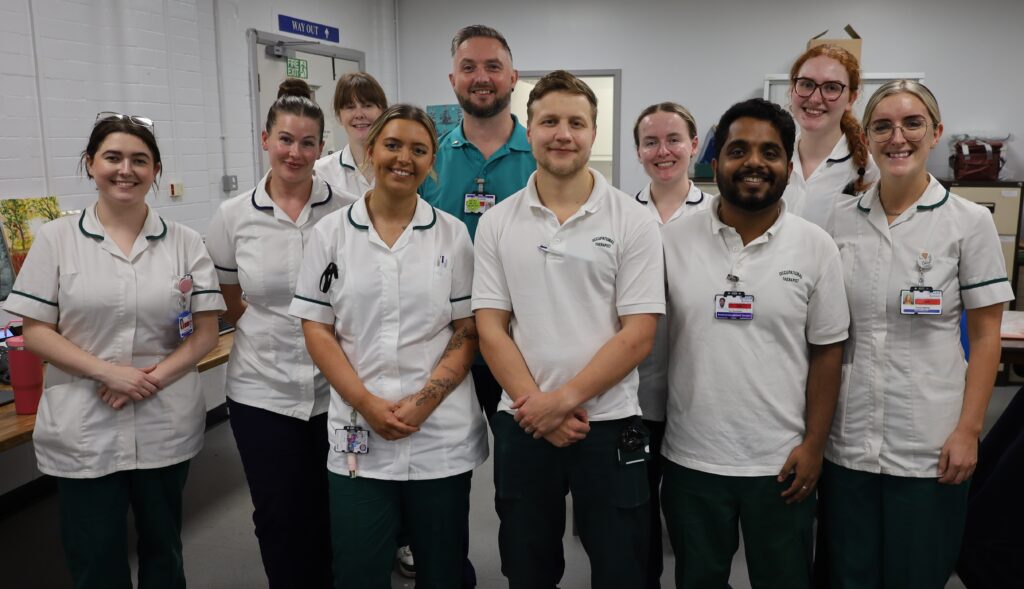
- Specialist Occupational Therapist, Sophie Jackson, shares a day in the life of her job
- Occupational Therapists are at the heart of many life-changing moments
- 3 – 9 November marks Occupational Therapy Week
One of Bolton NHS Foundation Trust’s Occupational Therapists has shared a glimpse behind the scenes of her role to show how they help patients regain independence after an illness or injury.
Sophie Jackson is a Specialist Occupational Therapist based at Royal Bolton Hospital, and has spent the past four years working in the NHS.
From helping children thrive in school to supporting adults and seniors in regaining their independence, Occupational Therapists are at the heart of many life-changing moments.
Whether it’s supporting someone after an injury, finding creative solutions to everyday challenges, or improving mental and physical well-being, they’re dedicated to improving care for people in Bolton.
To celebrate Occupational Therapy Week, Sophie’s documented what a day in the life looks like for her.
Start to the day
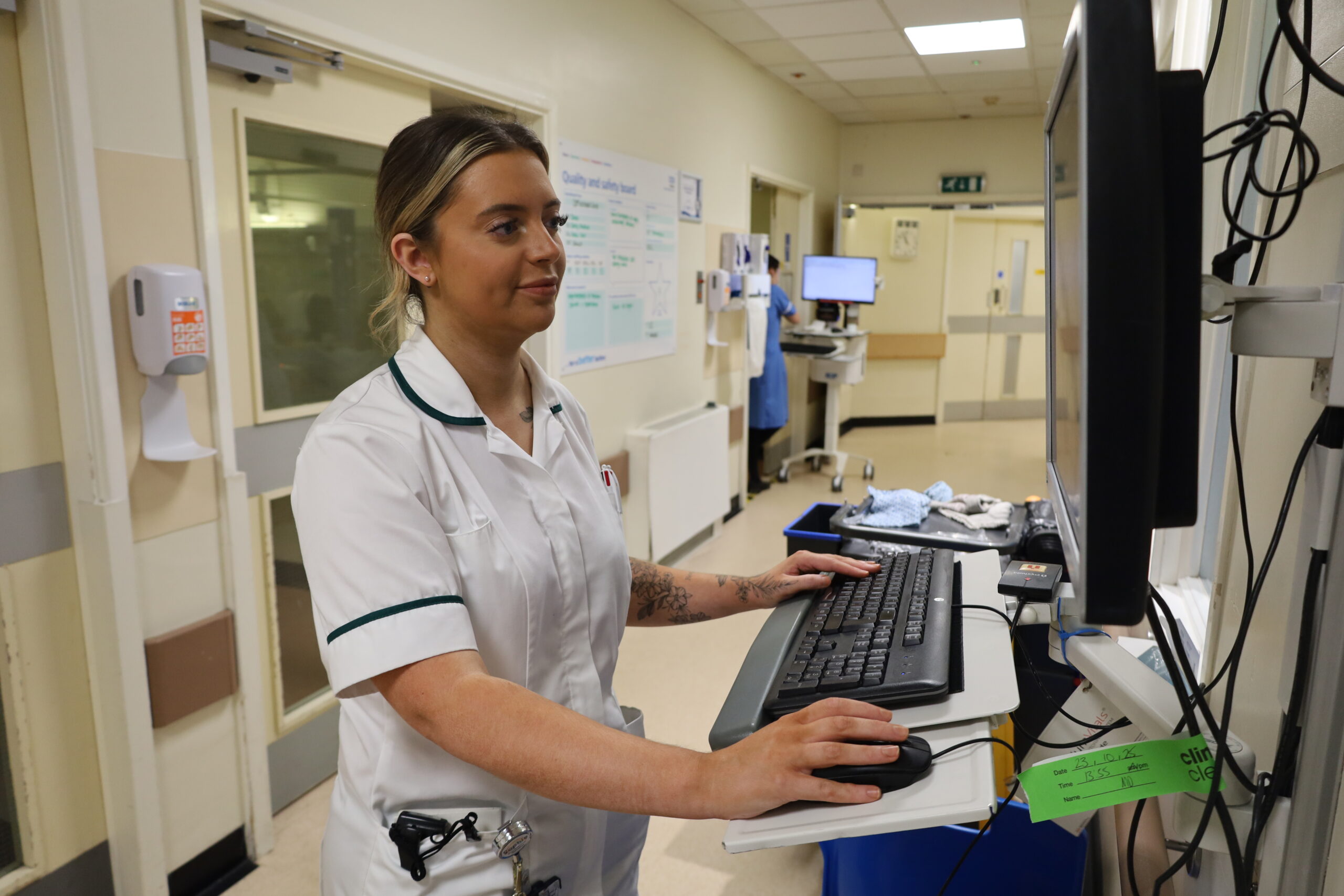
“Hi, I’m Sophie a specialist occupational therapist at Royal Bolton hospital. I wanted to take you through a typical day in my life and what Occupational Therapy looks like in hospital, including how we help patients regain independence after illness or injury. Let’s start the day on the ward.”
Triage multiple wards
“The first thing I do is triage the wards. This means checking new admissions and identifying which patients might need occupational therapy input — for example, those with mobility issues, reduced function, or cognitive changes after illness. I’ll also prioritise based on who’s medically stable and who’s ready for assessment.”
Handover to colleagues and speak with ward staff
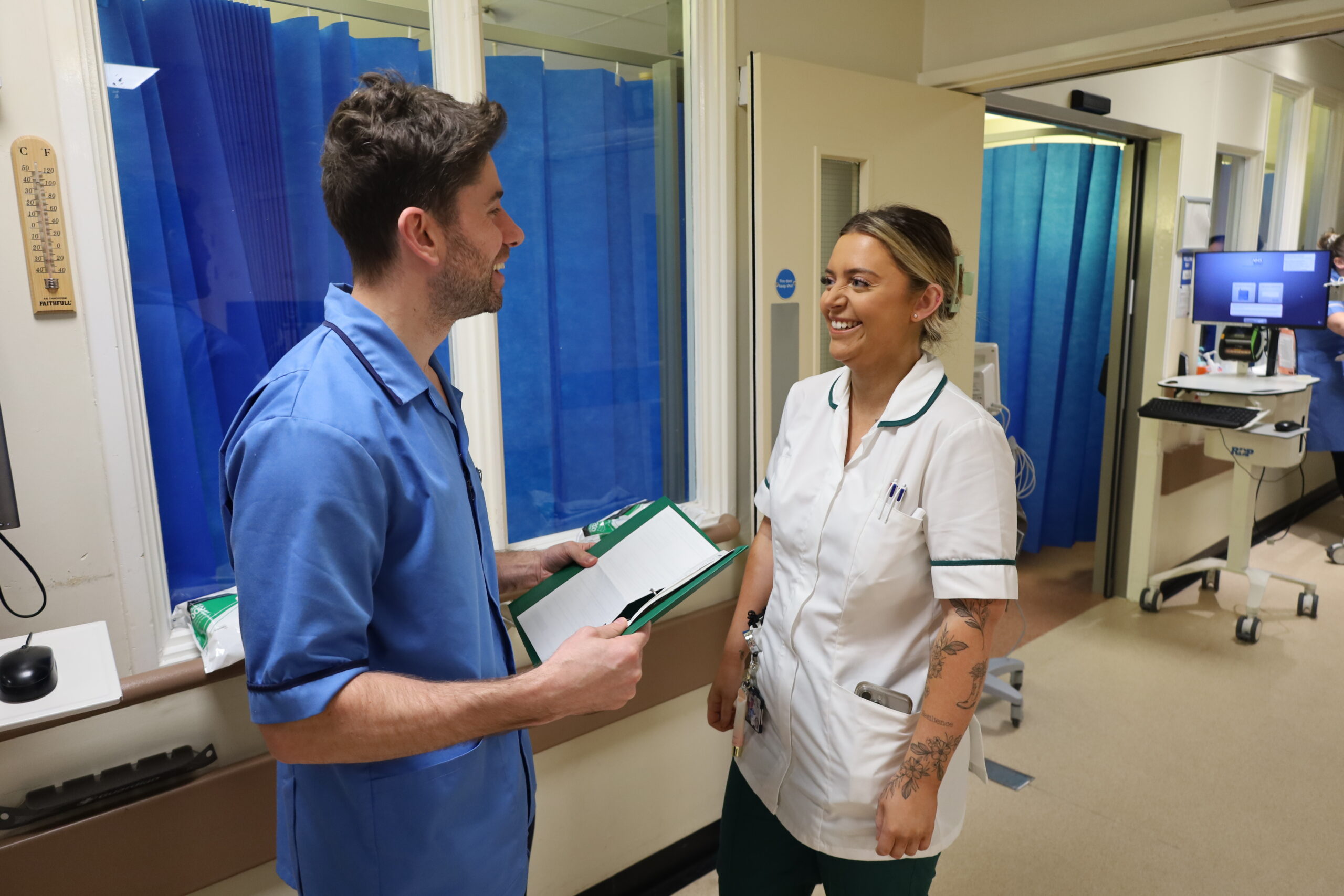
“A huge part of being an Occupational Therapist in a hospital is working with the multidisciplinary team — nurses, physios, doctors, and discharge coordinators.
“We discuss patient progress, plan discharges, and make sure everyone’s on the same page to support safe and timely discharges.
Prioritise the patients
“Once I’ve picked up new patients, I start with an initial assessment. That involves reviewing their medical notes, speaking with nurses or doctors, and then meeting the patient to understand how they were managing before coming into hospital.
“I focus on what’s meaningful to them — whether that’s being able to wash and dress independently, cook at home, or get back to work.”
Visiting patients
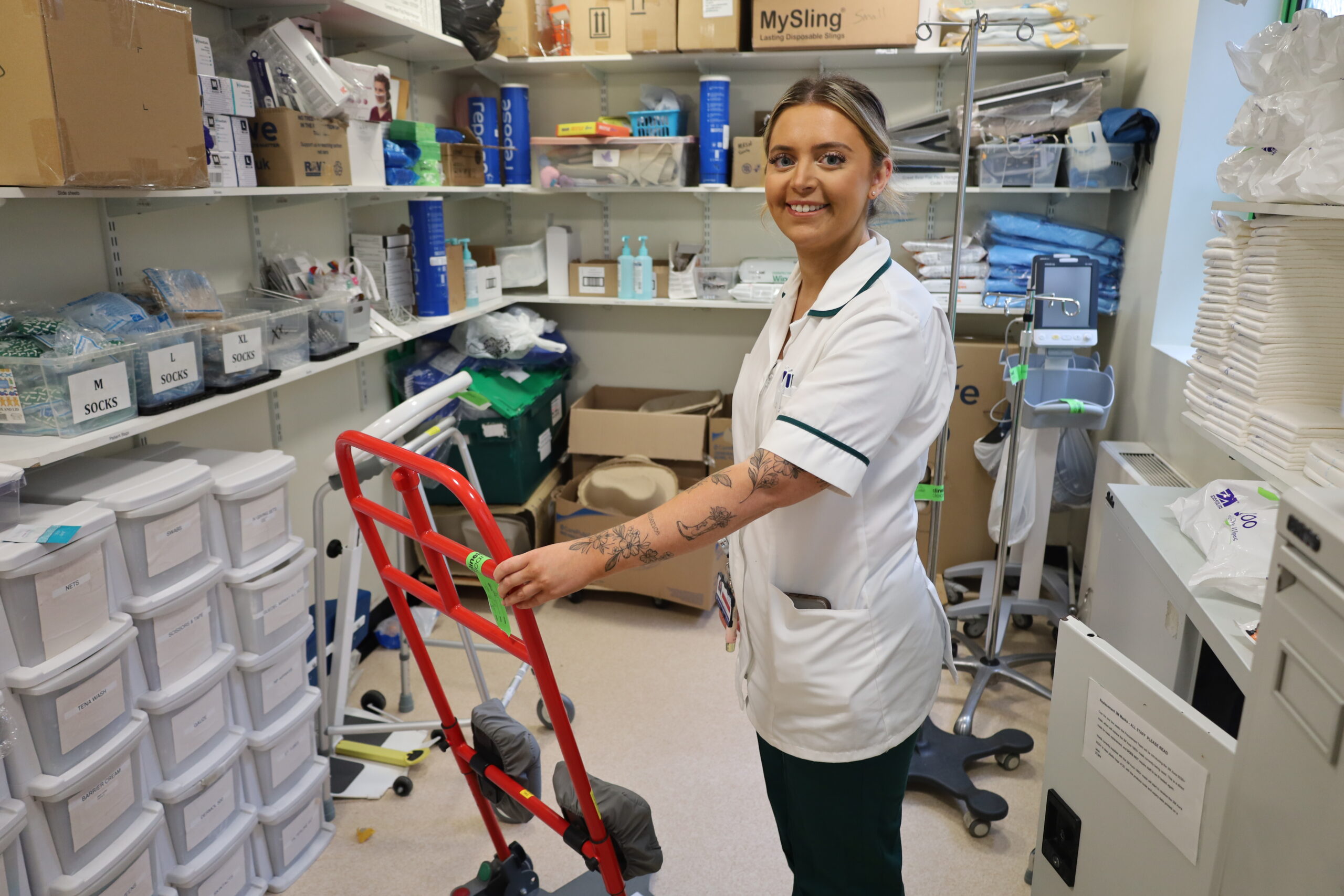
“Mobility assessments are a big part of what we do, especially in the medical setting. I’ll look at how safely someone can move around — from getting out of bed to walking to the bathroom — and whether they need equipment like walking frames or rails.
“I work closely with physiotherapists to make sure mobility plans are safe and realistic for discharge.”
Post-lunch huddle
“At midday we have a quick team huddle. It’s a chance for us to check in as a therapy team — OTs, physios, and therapy assistants — to plan the day, allocate patients, and share any important updates from the wards. It really helps us stay coordinated and make sure the right patients are seen at the right time.
Ending the day with note taking and creating referrals
“Towards the end of the day, I’ll update my notes and complete any referrals — whether that’s to community rehab teams, social services, or equipment providers.
“Documentation is such a vital part of our role, as it ensures everyone involved in the patient’s care is up to date.”
Sophie added: “It’s such a varied role — every patient and every day is different.
“I love being part of a team that helps people rebuild their independence and confidence after illness. Thanks for spending the day with me!”
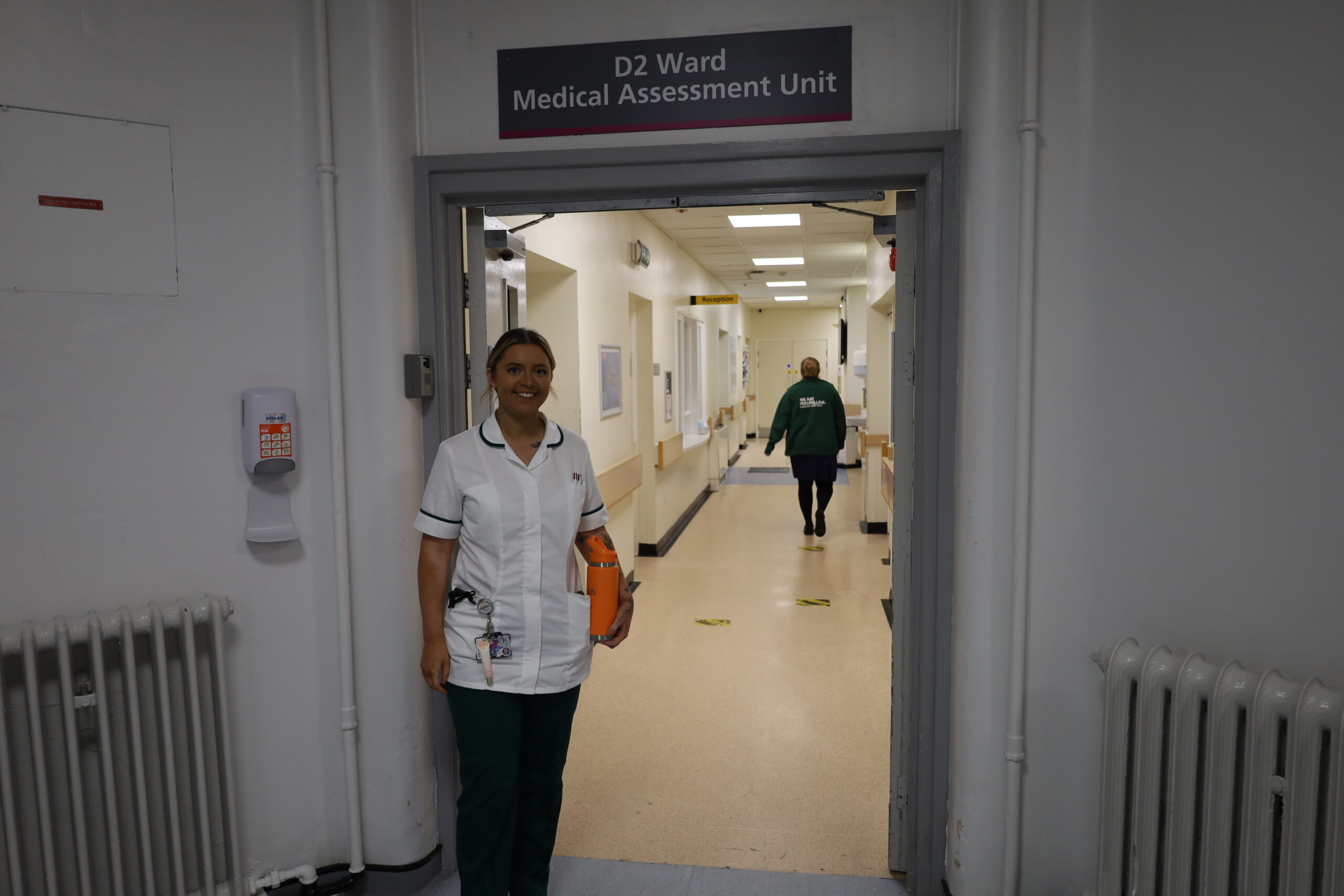
Occupational Therapy Week (3-9 November) is a national awareness-raising campaign by the Royal College of Occupational Therapists dedicated to celebrating the life-changing power of occupational therapy.